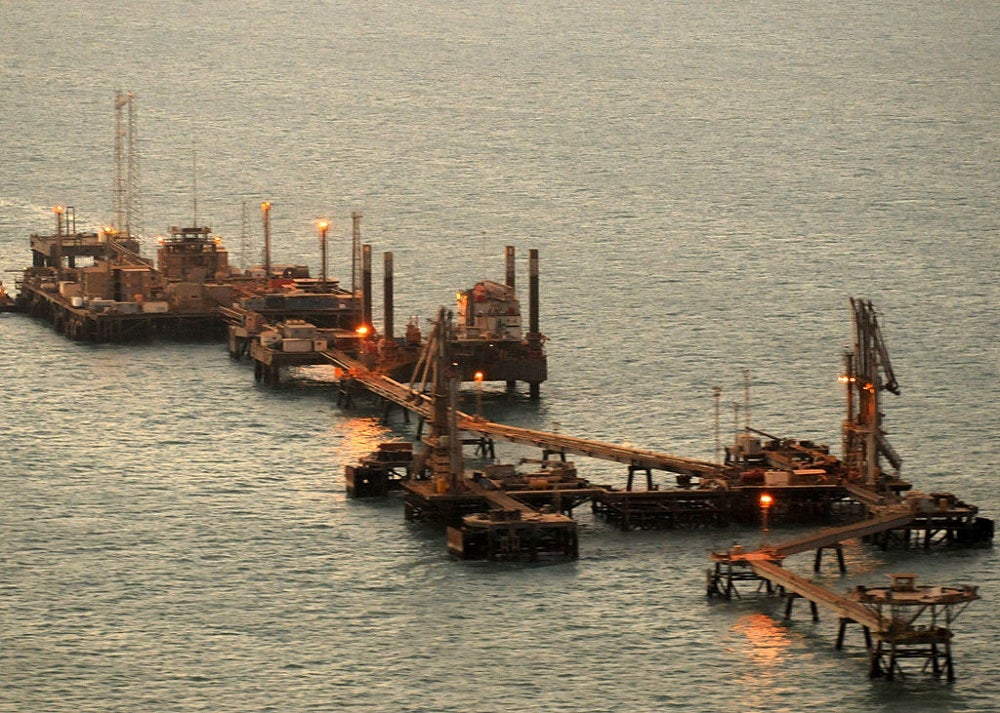
A complex and clandestine system of payments was used to help Unaoil executives hide evidence of bribery money paid to Iraqi officials, as it sought to secure lucrative oil and gas infrastructure contracts in the country, a court was told today (31 January).
Intermediary companies, secret codes and family favours were all deployed to hide the trail of money between Unaoil and its agents in Iraq who were paid to influence the outcome of industrial tender processes for reconstruction work in the years following the US invasion.
So said prosecutors for the UK’s Serious Fraud Office (SFO), which is leading a criminal lawsuit against three UK nationals associated with Monaco-based energy consultancy Unaoil for conspiracy to make corrupt payments – forming part of a wider international probe into the company’s activities.
Arguing the case for the SFO is Michael Brompton QC, who detailed the flow of cash from the top level of Unaoil’s executive team through to its “sub-contractors” – a reference to the intermediaries it allegedly paid to help it secure business for clients during a massive overhaul of Iraq’s oil and gas infrastructure in the post-Hussein years.
He said: “The purpose of this subterfuge was to create a buffer between Unaoil and the corrupt payments. It meant that if, for example, there was an audit, Unaoil had a layer of protection.
“The complex process by which Iraqi ‘sub-agents’ were remunerated demonstrates how senior Unaoil executives concealed corrupt payments.”
Unaoil used intermediary companies and secret codes to hide its bribery payments
Jurors at London’s Southwark Crown Court have heard how Unaoil paid a man called Oday Al Quoraishi – an employee of the state-owned South Oil Company – to manipulate and leak information about tender agreements issued as part of a government strategy to boost Iraq’s crude export capacity.
The programme, known as the Iraq Crude Oil Export Expansion Project (ICOEEP), was intended to more than double the country’s crude exports from 1.8 million barrels per day (bpd) to 4.5 million bpd.
Using connections like Al Quoraishi and another SOC employee called Dhia Jaffar Al Mousawi, Unaoil operated as a go-between for companies looking to secure work contracts in the expansion project and the government officials who offered them.
Al Quoraishi was said to be the consultancy’s key asset in this process, and Mr Brompton described to the court the lengths to which Unaoil went in order to disguise the nature of the payments made to him – a figure ultimately totalling $608,000.
The SOC insider was paid a $6,000 monthly retainer for his services, as well as two initial $5,000 payments and a one-off lump sum of $400,000 paid in February 2011.
But he did not receive these as direct transactions from Unaoil, said the prosecutor.
“Instead, Unaoil transferred funds to an intermediary company – Al Kassim Technical Services FZC – based at Sharjah Airport, International Free Zone, UAE,” he added.
“Sub-agents were not identified by name, rather by unique codes. For example, Al Quoraishi was given the code number AGTUIQ-721.”
Many of the retainer payments made to Al Quoraishi were sent in $36,000 bundles – as well as one $28,000 bundle which the prosecution said was directly authorised by one of the three defendants – Ziad Akle.
The three men on trial in the SFO corruption investigation
Akle, 45, was Unaoil’s territory manager for Iraq, and according to the prosecution was involved in “almost all the key events” relevant to the SFO investigations, holding a “very senior” position within the company.
In all, he is said to have received more than $425,000 for his part in securing the two infrastructure projects that are the focus of the inquiry – supplier contracts for single point moorings (SPM) equipment, as well as oil pipeline upgrades, which were awarded to Netherlands-based SBM Offshore and Singapore-based Leighton Offshore respectively.
Alongside him in the dock are Stephen Whiteley, 65, who was Unaoil’s general territories manager for Iraq, and formerly a vice-president of SBM Offshore; and Paul Bond, 68, who was a senior sales manager for SBM Offshore.
Whiteley is said to have received almost $11,000 for his role in helping to secure the SPM contract for Unaoil and its client SBM Offshore.
No details were given about remuneration paid to Bond, but prosecuting lawyers maintain that while he “may not have known the detail of Unaoil’s dealings with Al Quoraishi, he knew perfectly well what was afoot and was happy to join in”.
All three men deny the charges against them.
The family connection
The Al Kassim bank account – which Mr Brompton called a “vehicle for Unaoil’s corrupt payments” – was opened at Bank Meli in Dubai in 2009, and was administered by a man referred to only as “Mamoodi”.
The owners of Al Kassim Technical Services have all been found to be connected to the Unaoil hierarchy, through various shareholding arrangements and investment firms.
Muhammed Noor and Rafia Nooral Deen, who held a 40% stake, are the brothers of Basil Al Jarah – Unaoil’s country manager for Iraq who last year pleaded guilty to the SFO’s accusations of conspiracy to make corrupt payments.
Noor was revealed to be the figure known as Mamoodi, who was responsible for administering transactions from the account.
The other shareholder in Al Kassim was Pinnacle Finance Investment, a company in which the majority owner was Ata Ahsani – the founder of Unaoil whose two sons Cyrus and Saman were CEO and COO and have been subject to related criminal investigations in the US.
Once the funds were released by the Al Kassim bank account, the money trail goes cold, although Mr Brompton insists there is little doubt as to its final destination.
He said: “The evidence doesn’t reveal how the money reached its source, but it is clear the money was intended for Al Quoraishi.”
The trial continues.




